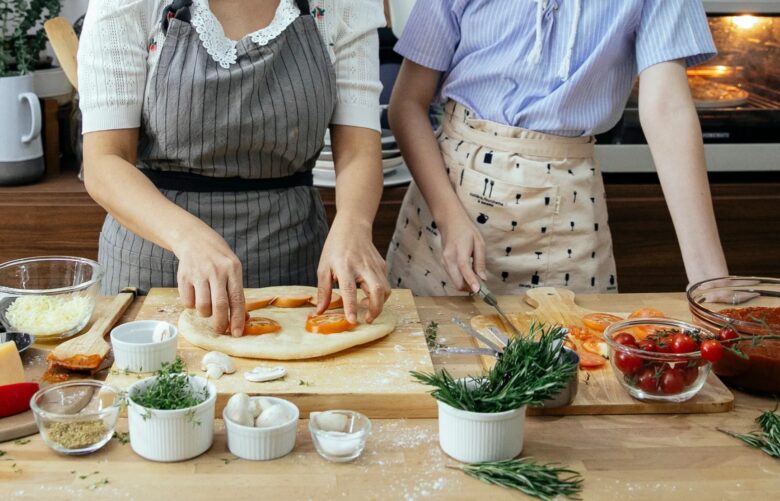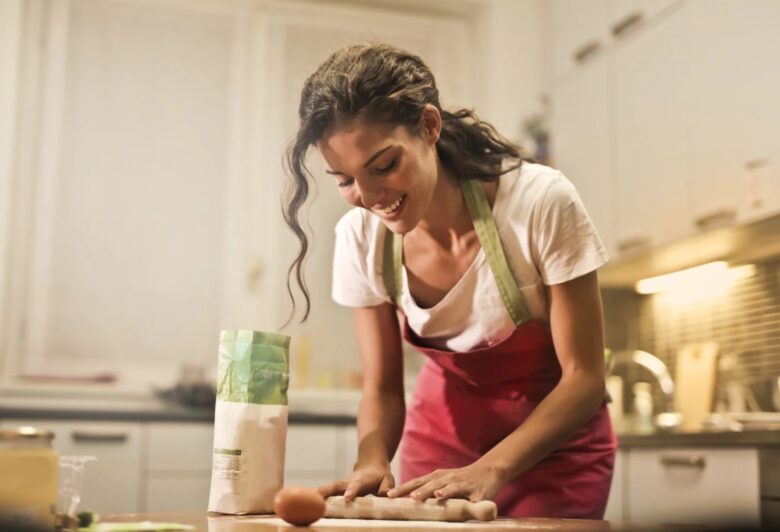Cooking your own food is a challenging activity that can keep you healthier and more engaged with the foods you eat. For many, it’s also fun. But for millions of people, cooking is a grueling or boring task – or one that takes way too much time or effort.
How can you make cooking a better experience? How can you naturally motivate yourself to cook more often?

Source: gettyimages.com
Find Out What You Don’t Like
We’re about to introduce you to several strategies that have the potential to make cooking more enjoyable and approachable. However, it’s important to realize that every individual has a different kind of relationship with cooking.
Before you attempt to integrate any new strategies into your regular cooking schedule, it’s a good idea to spend some time reflecting so you can figure out what it is, exactly, that you don’t like.
For example, do you hate the idea that cooking is time consuming? If so, you’ll need to focus on strategies that can save you time. Do you hate the tedium of cooking? If so, you’ll need to focus on strategies that introduce you to more variation and stimulating activities.
No matter what, there’s a path forward for you.

Source: pexels.com
How to Improve Your Cooking Experience
These are some of the most effective strategies for improving the overall cooking experience:
- Splurge on some new equipment. One idea is to splurge on some new equipment, which can motivate you to experiment with new cuisines or participate in an entirely new realm of cooking. For example, an outdoor pizza oven has the potential to change how you see pizza forever. Most people don’t even consider making homemade pizza; instead, they keep buying the same glorified cardboard from the same familiar chains. But if you had a high-quality pizza oven in your own backyard, you might be more inclined to experiment with new pizza recipes.
- Upgrade your old tools. Take a look at the tools you’re currently using in the kitchen. How effective are they? Depending on the age and quality of your tools, it may be in your best interest to make some upgrades. For example, if your only kitchen knife is dull and poorly suited to most applications, spending $1-200 on a new knife could instantly make your cooking experience smoother and more enjoyable. Get rid of anything that seems to make the cooking experience more difficult.
- Focus on your favorite cuisines. You don’t have to constantly experiment, nor do you need to rely on a style that’s entirely your own. For many people, the path to more culinary enjoyment is focusing on your favorite cuisines. For example, if you love cooking Tex-Mex food, make it a mainstay in your household. The more experience you get, the more intuitive it will become, and the freer you’ll feel to experiment.
- Take shortcuts as needed. There are dozens of little shortcuts that can make your cooking work much easier. Some of these shortcuts do have the potential to weaken your ultimate creation, at least in the eyes of some culinary critics. But pay no mind to these insinuations; try the shortcuts for yourself. Something simple, like using canned tomatoes instead of cutting fresh ones, can save you a lot of time without necessarily ruining what you’re cooking. If that makes your experience more pleasant, it might be worth the sacrifice.
- Do the prep work in advance. Some people enjoy cooking more when all the prep work is done in advance, separately from the actual cooking. For example, you can take a day to cut and measure all your ingredients, and then assemble them and cook them the next day. It’s mostly a matter of personal taste.
- Enlist assistants. Tired of shouldering all the cooking responsibilities? Get your spouse, partner, kids, or friends to help. Cooking is even more fun when you have other people working with you – and it dramatically cuts down on the time it takes to cook a dish.
- Create food bars. If you don’t feel like cooking full dishes, consider creating food bars. For example, you can cook a few ingredients for a taco bar, and let people assemble their own tacos. It cuts down on the work required of you and gives people more liberties to make their own creations.
- Make your kitchen more “you.” If you’re going to spend more time in your kitchen, consider redesigning it to make it feel more your own. Painting the walls, adding a new backsplash, or including more items of your favorite décor could make all your kitchen experiences more engaging.
- Invest in entertainment to distract you. You can also invest in entertainment options that distract you from the drudgery of cooking. You can listen to a podcast, install a TV in your kitchen and watch a movie, or blast your favorite music from a portable speaker.
- Stop striving for perfection. Perfectionism can be harmful to your mental health, regardless of where it applies, and it’s something that holds a lot of amateur chefs back. If you try a new recipe and it doesn’t turn out the way you imagine, or if you have several dishes in a row that represent failed experiments, you might be so discouraged that you consider giving up on cooking altogether. But failures and mistakes are all part of the experience; if you learn to recognize them for what they are, and accept the possibility of failure, you’ll enjoy cooking much more than you would otherwise.

Source: unsplash.com
The Joys of Cooking
Cooking can be fun. It can be entertaining. It can be healthy and delicious. Because there’s so much room for experimentation and so many potential paths for development, cooking can be whatever you want it to be.
If you’re not currently having a good experience in the kitchen overall, a handful of changes to your approach may be all it takes to completely transform your perspective.
